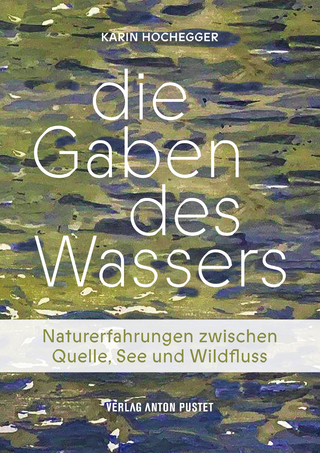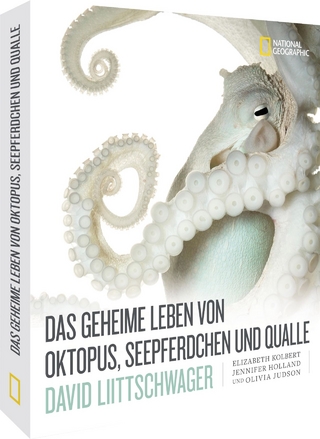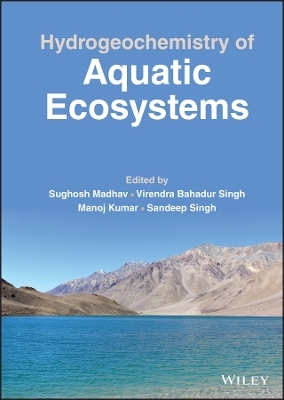
Management of Freshwater Biodiversity
Cambridge University Press (Verlag)
978-0-521-51400-2 (ISBN)
Integrating research into freshwater biodiversity and the role of keystone species, this fascinating book presents freshwater crayfish as representatives of human-exacerbated threats to biodiversity and conservation. It uses examples from these and other large decapod invertebrates to explore how communities function and are controlled, alongside the implications of human demands and conflicts over limited resources, notably the severe impacts on biodiversity. The discussion is structured around three key topics – the present situation of crayfish in world freshwater ecosystems, the applications of science to conservation management and knowledge transfer for successful crayfish management. It outlines the historic exploitation of crayfish, addressing the problems caused by invasive alien forms and explaining the importance of correct identification when dealing with conservation issues. Offering a global perspective on freshwater systems, the book ultimately highlights how the conservation of such large and long-lived species will help protect ecosystem quality in the future.
Julian Reynolds is Emeritus Fellow of Trinity College Dublin, Ireland and former Head of its Department of Zoology. He is a freshwater ecologist with particular interests in crustaceans and in small, extreme or ephemeral habitats (fens, bog pools, turloughs). He has extensive experience consulting on environmental pollution and crayfish management in Ireland. Catherine Souty-Grosset is a research scientist and head of the Populations and Communities group of the 'Ecology, Evolution, Symbiosis' Laboratory at the University of Poitiers, France. Her research focuses on both population biology of isopods and conservation biology of indigenous European crayfish including the control of invasive crayfish species.
Preface; Acknowledgements; Introduction: biodiversity in freshwater systems, and the key role played by crayfish; Part I. The Present Situation of Crayfish in World Freshwater Ecosystems: 1. Crayfish in the decapod lineage, their natural distribution and their threatened status Julian Reynolds, Catherine Souty-Grosset and Keith Crandall; 2. Why are crayfish, among freshwater decapods, considered pivotal in freshwater ecosystems? Julian Reynolds, Catherine Souty-Grosset and Alastair Richardson; 3. Crayfish as prime players in ecosystems: life history strategies Julian Reynolds, Catherine Souty-Grosset and Alastair Richardson; 4. Human-mediated threats to crayfish survival: environmental degradation, climate change and translocations Julian Reynolds, Catherine Souty-Grosset and Francesca Gherardi; 5. Crayfish exploitation systems: harvest fisheries, aquaculture and consequences for biodiversity; Part II. Applying Science to Conservation Management: Section 1. Protecting Freshwater Biodiversity Through Monitoring and Conserving Crayfish: 6. Understanding and managing biodiversity using crayfish; 7. Monitoring in conservation and management of indigenous crayfish populations; Section 2. Management for Conservation: 8. Control and management of non-indigenous crayfish Julian Reynolds, Catherine Souty-Grosset and Francesca Gherardi; 9. Biodiversity management through the reintroduction of heritage crayfish species; Part III. Knowledge Transfer for Successful Crayfish Management: 10. Effective legislation and public education are required for adequate conservation of crayfish and biodiversity; 11. Management strategies to protect crayfish and biodiversity; 12. Maintaining biological diversity and human well-being; Appendices; References; Glossary; Index.
| Erscheint lt. Verlag | 10.11.2011 |
|---|---|
| Zusatzinfo | 29 Tables, black and white; 16 Plates, color; 21 Halftones, unspecified; 9 Line drawings, unspecified |
| Verlagsort | Cambridge |
| Sprache | englisch |
| Maße | 181 x 254 mm |
| Gewicht | 940 g |
| Themenwelt | Naturwissenschaften ► Biologie ► Limnologie / Meeresbiologie |
| Naturwissenschaften ► Biologie ► Ökologie / Naturschutz | |
| Naturwissenschaften ► Biologie ► Zoologie | |
| ISBN-10 | 0-521-51400-2 / 0521514002 |
| ISBN-13 | 978-0-521-51400-2 / 9780521514002 |
| Zustand | Neuware |
| Haben Sie eine Frage zum Produkt? |
aus dem Bereich


